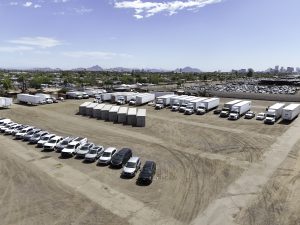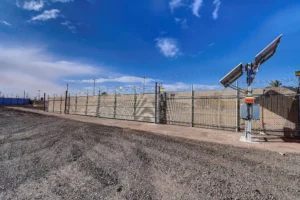If you own land near a highway or industrial corridor, there’s a booming opportunity you might be overlooking: commercial truck parking. With thousands of truck drivers on the road every day and nowhere safe to park, the demand for reliable, secure truck parking has skyrocketed—and smart landowners are turning that demand into serious revenue.
Truckers aren’t just looking for convenience. They’re required by law to take breaks, rest, and shut down when their hours run out. Unfortunately, there’s a major shortage of truck parking spaces across the country. That’s where you come in.
In this post, we’ll break down the economics behind commercial truck parking—why the need is so urgent, what kind of land works best, how much it costs to get started, and what kind of return on investment landowners are seeing from this niche but growing real estate category.
Whether you’re already considering semi-truck parking lots or you’re brand new to the idea of a real estate parking investment, this guide will walk you through everything you need to know. Let’s explore how unused land can become a high-demand asset in one of the country’s most overlooked (but essential) logistics problems.
The Truck Parking Crisis — And the Opportunity for Landowners
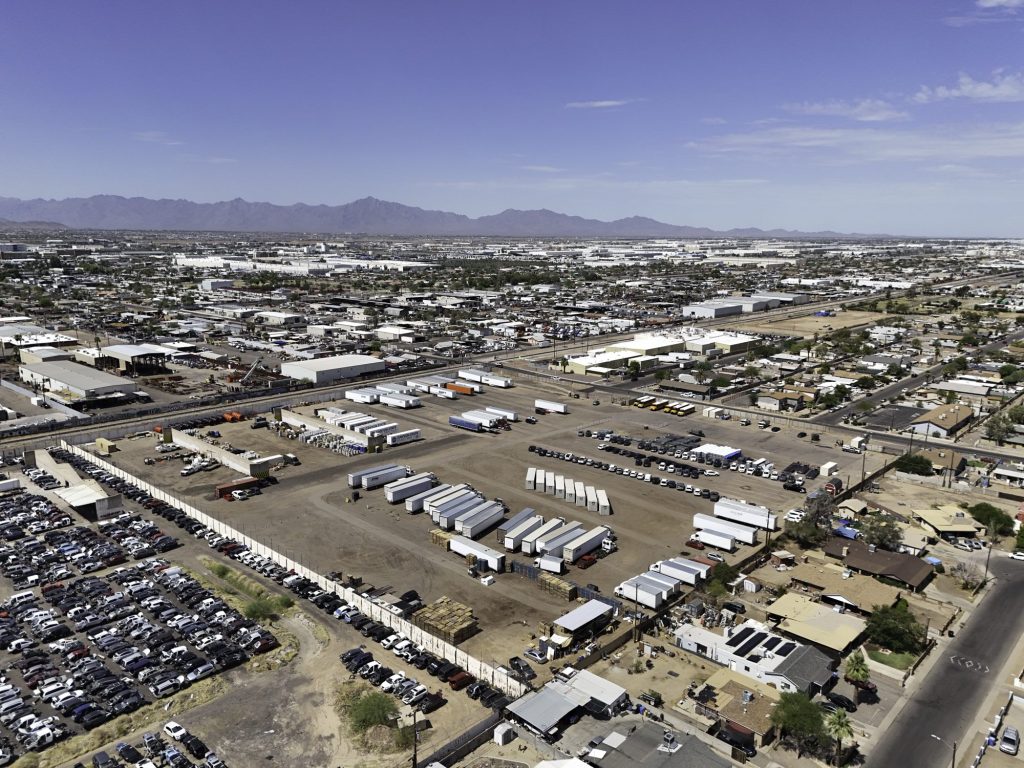
Imagine driving an 80,000-pound semi for 10 hours straight, only to find there’s nowhere legal—or safe—to park when your hours are up. That’s the daily reality for thousands of truckers across the country. And it’s not just frustrating; it’s dangerous and costly. With the rise of e-commerce and freight demand at an all-time high, the shortage of commercial truck parking has become a nationwide problem—and one that smart landowners can help solve.
The Federal Highway Administration estimates there’s just one parking space for every 11 trucks on the road. As a result, drivers often spend valuable time searching for parking or end up stopping in unauthorized or unsafe areas. That’s where landowners like you come in.
If you own underused land near major interstates, shipping hubs, or industrial areas, you’re sitting on an opportunity. Developing that land into a commercial truck parking lot not only helps meet a critical need in the trucking industry—it can also become a stable, long-term income stream.
This isn’t just a good deed for the trucking community. It’s a business model. And in the sections ahead, we’ll show you how to turn your land into high-demand truck parking spaces, what kind of returns you can expect, and how to do it the right way from day one.
Why Commercial Truck Parking Demand Is Booming
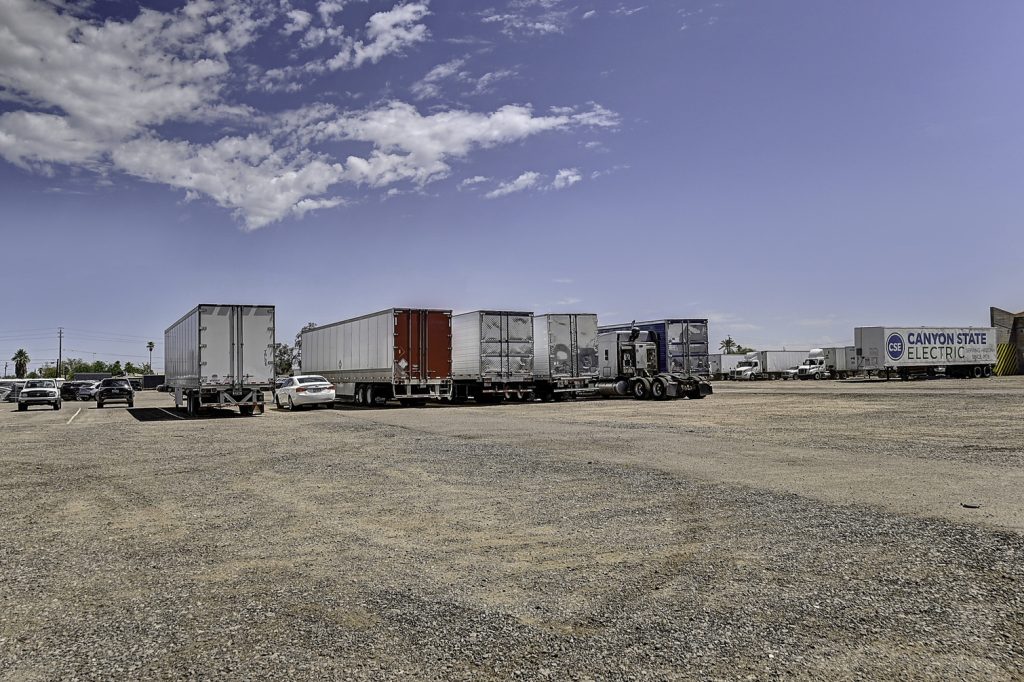
If you’ve ever seen rows of semis parked along highway shoulders or tucked into rest area exits, you’ve already witnessed the effects of a growing problem: there simply isn’t enough commercial truck parking to meet demand. And that demand isn’t slowing down anytime soon.
Here’s why. The freight industry is growing fast—thanks to online shopping, just-in-time deliveries, and an expanding network of distribution centers across the country. More freight means more trucks. But despite all this growth, the number of legal, secure truck parking spaces has barely increased in the last decade.
To make matters more complicated, federal Hours-of-Service (HOS) rules require drivers to rest after a set number of driving hours. That means truckers must park—whether or not there’s a spot available. And when they can’t find a spot at a rest stop or truck stop, they’re often forced to park on off-ramps, business lots, or remote roads. It’s not just inconvenient—it’s unsafe and, in some cases, illegal.
This demand has created a powerful opportunity for those with land in the right location. If you’re near a major highway, intermodal facility, or industrial park, turning your property into semi-truck parking lots could fill a real gap in the market.
Drivers are willing to pay for safe, well-lit parking. Carriers are looking for reliable options they can use consistently. And landowners are realizing that commercial truck parking isn’t just helpful—it’s highly profitable when done right. Keep reading, because we’re about to explore exactly what makes a piece of land ideal for truck parking.
What Makes Land Ideal for Truck Parking Spaces?
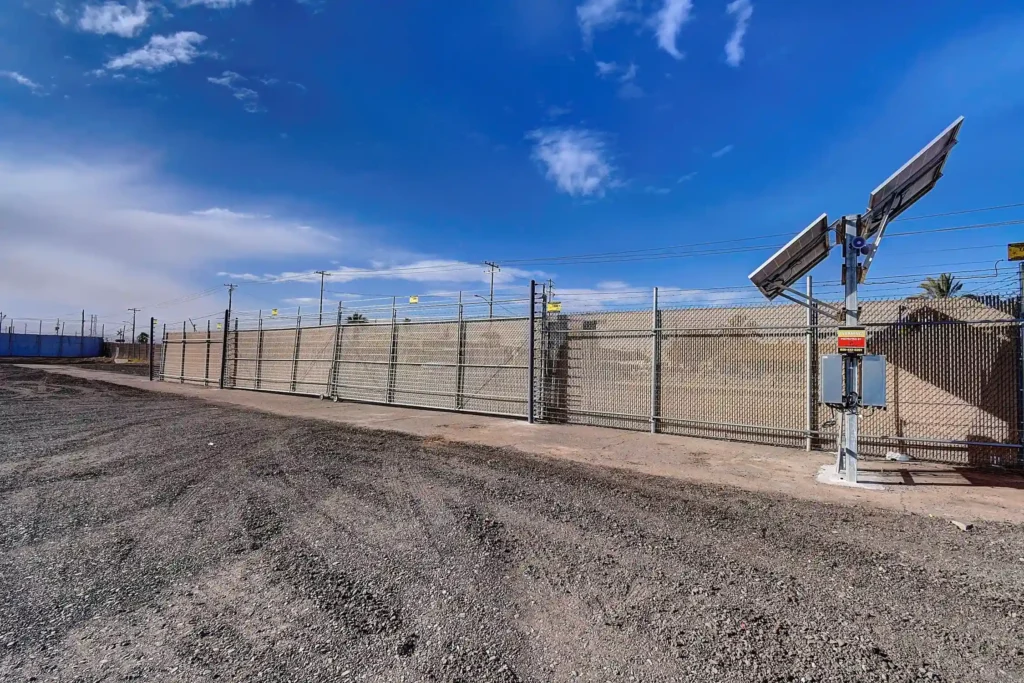
Not all land is created equal—especially when it comes to turning it into income-generating truck parking spaces. If you’re considering entering the world of commercial truck parking, location and usability are everything. The right setup can mean steady, long-term revenue. The wrong one? It could sit empty no matter how much pavement you pour.
So, what exactly makes a piece of land ideal for truck parking?
Location is the first big factor. Truck drivers need places to park that are close to where they drive and deliver. That means land near major highways, distribution hubs, interstates, or busy trucking corridors is in the highest demand. If your property is just a mile or two from an off-ramp, that’s already a huge advantage.
Size and layout matter, too. Trucks are big—really big. A standard semi with trailer can take up about 75 feet. That means you need space not just to park, but for trucks to easily turn around and maneuver. Wide driveways, clear sightlines, and a well-designed layout make all the difference for drivers choosing one lot over another.
The surface of your lot also counts. Gravel might work, but paved or well-packed lots are easier on equipment and more desirable, especially for long-term parking. Add in proper lighting, fencing, and maybe even restrooms or security cameras, and your lot stands out from the crowd.
Even if your land isn’t currently developed, you’d be surprised how easily it can be converted. Many semi-truck parking lots started as vacant fields, empty lots, or underused industrial parcels. With the right investment and a good plan, they were transformed into high-demand truck parking spaces generating consistent monthly income.
The Financials: Understanding the Real Estate Parking Investment Model
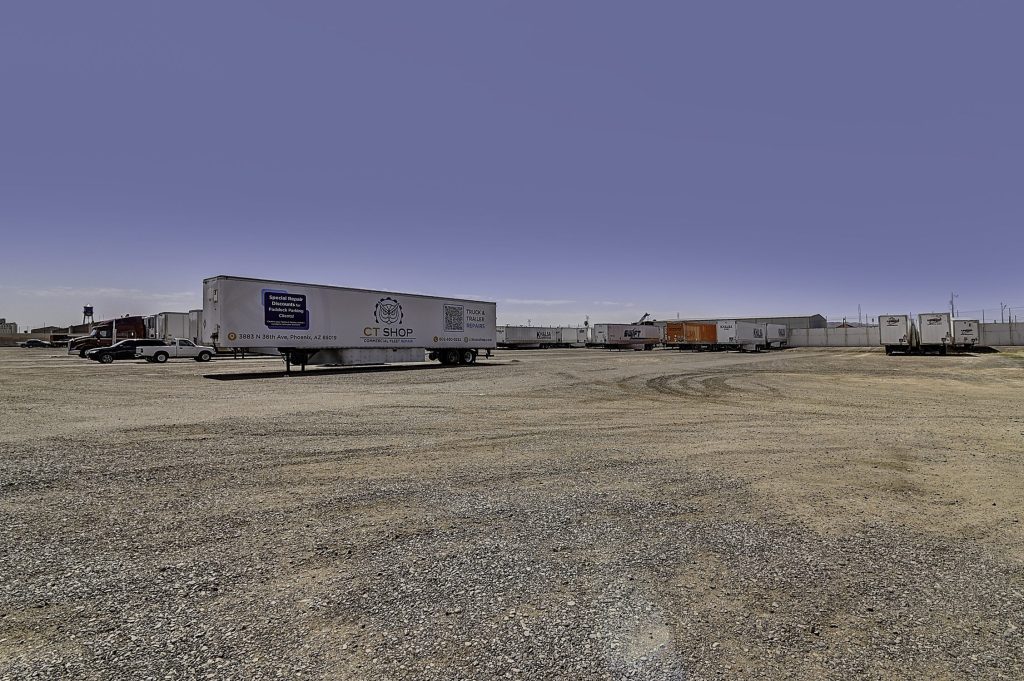
Let’s talk numbers—because at the end of the day, a real estate parking investment only makes sense if the math works. The good news? In the world of commercial truck parking, the economics are surprisingly attractive, especially when compared to traditional real estate investments like residential rentals or retail space.
First, consider the startup costs. If you already own the land, you’re a step ahead. Prepping it for use as a semi-truck parking lot can include grading, gravel or asphalt surfacing, fencing, lighting, signage, and gate installation. Depending on the size and your amenity plans (like security cameras or bathrooms), upfront costs can range from modest to mid-range—but nowhere near the price tag of building structures.
Then comes the income side. Once your truck parking spaces are ready, you can charge drivers daily, weekly, or monthly rates. In many areas, monthly parking fees for a single semi-truck range from $150 to $300 or more. Multiply that by 10, 20, or even 50 spaces, and the passive income starts to add up quickly.
Operating expenses are generally low. You’ll need to account for basic maintenance, insurance, and maybe a part-time lot attendant or remote access system, but overhead is far less than what you’d manage with apartments or commercial buildings. And because trucks don’t complain, call about clogged toilets, or move out in the middle of the night, managing a real estate parking investment like this is refreshingly straightforward.
Plus, demand is only increasing. As long as freight keeps moving, trucks will need safe places to park. That makes commercial truck parking a smart, scalable option for landowners looking to turn space into steady, reliable income—with less stress than other real estate ventures.
Zoning, Permits, and Legal Considerations
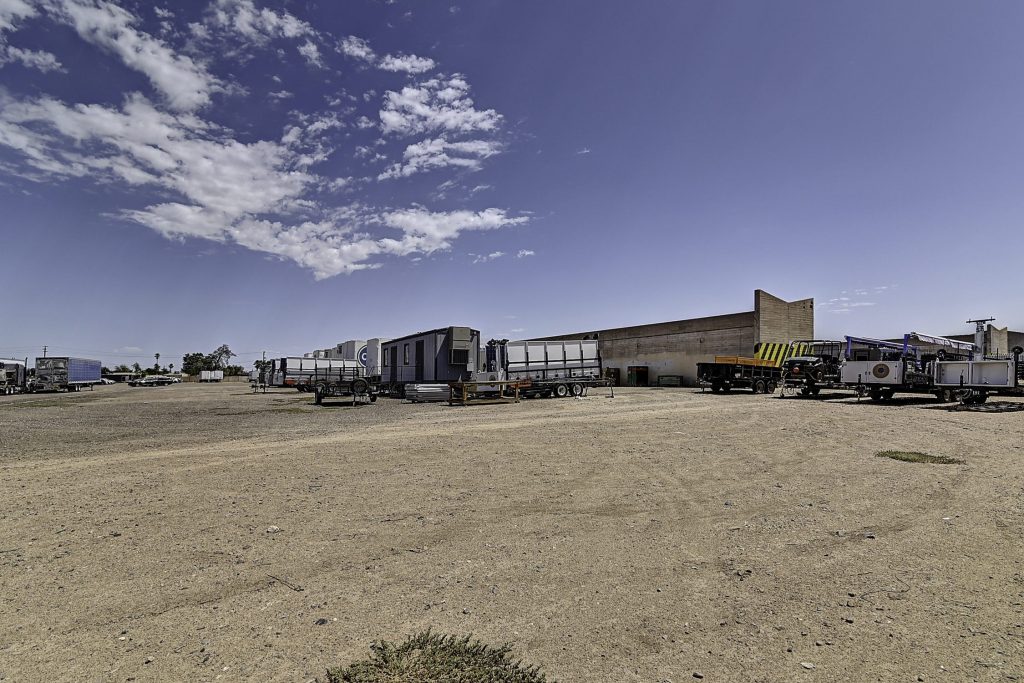
Before transforming land into a commercial truck parking lot, it’s essential to make sure everything is legally in place. Zoning and permits can make or break your project, so getting it right from the start is key.
Start by checking your land’s zoning classification. Not all properties are zoned for semi-truck parking lots, so contact your local planning department. If your land isn’t zoned correctly, you may need to apply for rezoning or a special use permit.
Next, understand what permits are required. This can vary by region but often includes:
- Site development or land use permits
- Grading and stormwater management
- Environmental impact assessments
- Access or traffic approvals
Your lot may also need to meet local standards, such as:
- Fencing and secure entry
- Lighting for safety
- Dust control for gravel surfaces
- Signage and marked truck parking spaces
Because every municipality is different, working with a local civil engineer or zoning consultant can make the process easier and faster.
Taking care of zoning and permits might seem like a hassle, but it lays the legal foundation for a long-term, income-producing real estate parking investment. Once you’re approved, you can operate confidently—knowing your commercial truck parking lot is fully compliant and ready to serve a high-demand market.
Turning Land into Opportunity with Commercial Truck Parking
As demand for commercial truck parking continues to rise, landowners are in a unique position to turn unused or underutilized space into a steady stream of income. Whether it’s a few acres near a major highway or a vacant industrial lot, the opportunity is real—and growing.
We’ve explored the reasons behind the nationwide truck parking shortage, what makes land ideal for truck parking spaces, the financial benefits of a real estate parking investment, and the legal steps needed to get started. With the right location, smart planning, and a little upfront effort, creating a profitable semi-truck parking lot is not only possible—it’s a smart move in today’s logistics-driven economy.
And the best part? You’re not just building a business—you’re solving a problem that affects thousands of truckers every day.
Ready to explore the potential of your land? Start by checking your zoning, researching local demand, or talking with an expert who understands truck parking development. With the right approach, you could be providing essential commercial truck parking while building long-term value from the ground up.



